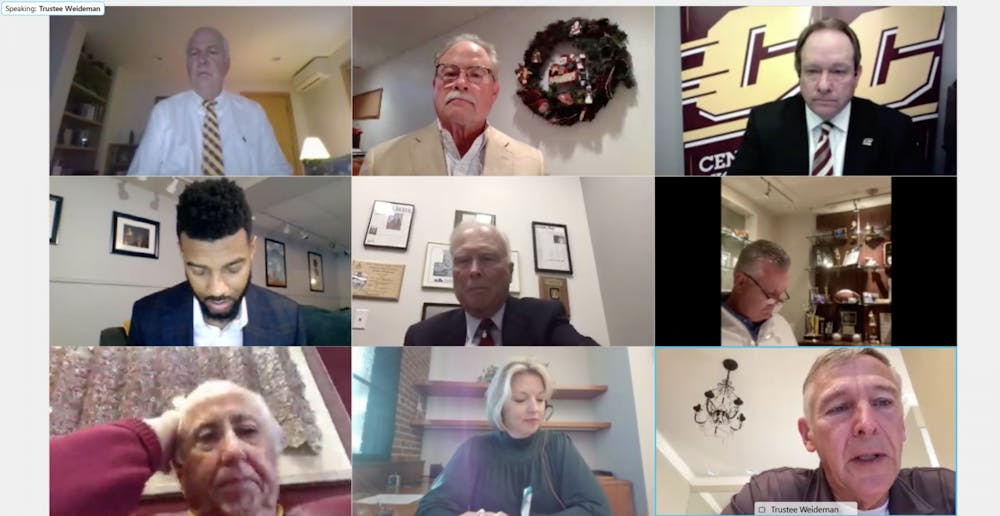Board of Trustees vote to transition from the RCM model
Central Michigan University's Board of Trustees supported the suspension of the use of Responsibility Centered Management (RCM), the budget model the university has used since 1998.
President Bob Davies said the RCM model provides a formula method to distribute state appropriations and tuition dollars to the colleges. The funding model funnels dollars to the colleges and departments the students are taking the most courses.
"(RCM's) primary strength is that it's very predictable. It's very transparent. You just apply the formula and it moves forward," Davies said. "With regards to the academic unit, where it does change a little bit as it does create silos between colleges, it does create internal competition for funds. Where the students go, the dollars go."
Using the RCM model, each academic college receives all of its own revenues and income, which includes tuition dollars.
"RCM model works if it's reviewed at least every two years and a deep dive every five years or more to deal with strategic changes, environmental changes in various things along those lines," Davies said.
The last time CMU did a deep dive of their RCM model was in 2008 with an internal review in 2013.
"With the significant changes that have gone on in the environment, the strategic changes, the environmental changes, state appropriations, tuition, dollars ... it is time to put a pause on that model," Davies said. "(It is time) to reevaluate and to direct resources where there's opportunities and strategic initiatives can be aligned."
As it is planning for its upcoming fiscal year, CMU will use a model of strategic allocation.
"Over the 2021 calendar year we will present recommended changes to the board of trustees to return to a model that has RCM elements to it, as well as performance measures," Davies said.
Faculty Association representative and educational leadership faculty member Frimpomaa Ampaw said that RCM works very well when everything is going smoothly, but it doesn't work well when budget cuts need to be made.
"That's where we are at at this time and given everything we are going through RCM makes it more challenging to run a university," Ampaw said. "There needs to be some change, but I don't know what the change will look like."
In addition to changing the RCM model, the trustees voted to approve the $5 million remodeling of Troutman Hall into double full-sized bed suites, following in the lead of Carey Hall.
Carey Hall opened for students to sign up to live in for the 2020-21 academic for in January 2020 and was completely booked in 24-hours.
"We know that new students and are looking for housing situations that are up to date, and that are inviting and various things along those lines" Davies said. "For many years, we have not put a lot of funding into our residential stock. And we know that from talking to students who have chosen to go to other universities, one of the reasons that is mentioned is the is the living conditions, the residential halls."
Director of Residence Life Kathleen Gardner agreed with Davies that Residence Life can play an important role in recruiting and retaining students at CMU
"We took a room that was set up for four students – two sets of bunk beds – and replaced those with two full size beds," Gardener said. "We put down the LVT flooring and did some finishing updates to the bathroom. In the hallway, we had already had new carpet installed but we did some painting highlights to make the hallways look a little less institutional."
The price point for these housing facilities is between the cost of traditional halls and the premium halls since it does not offer the air conditioning unit. Troutman Hall will be opened for the Fall 2022 semester.
The final piece of news announced at the meeting was that CMU received more $265,000 on Giving Tuesday, which is over $100,000 more than last years less than $145,000.
"I think it exhibits that CMU Chippewa pride. It signifies the 'Fire Up!' spirit," Davies said. "One thing that I've always said, is that CMU has raving advocates, not just alumni, but radiant advocates, so it really plays into what CMU is about."




